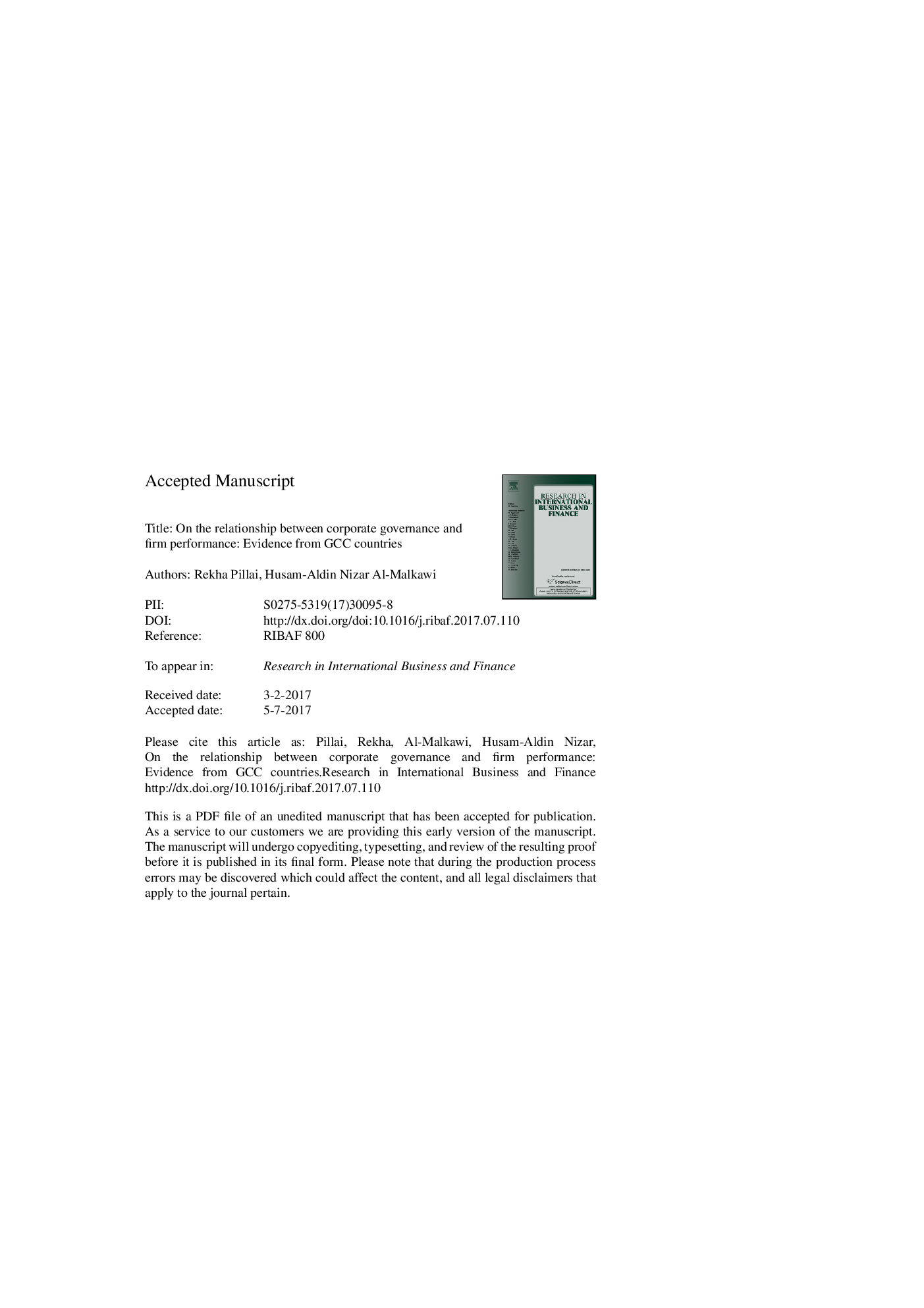| Article ID | Journal | Published Year | Pages | File Type |
|---|---|---|---|---|
| 7413982 | Research in International Business and Finance | 2018 | 46 Pages |
Abstract
Governance is increasingly recognized by the business community, regulators and capital market authorities as a fundamental driver of corporate performance. The accelerated interests by the investing fraternity in the Gulf Cooperation Council (henceforth GCC) equity markets due to the myriad benefits accruing in the form of laudable trade policies, progressive growth strategies, tax holidays, guaranteed return on investments and political stability signals a radical shift in ensuring better surveillance and robust corporate governance. This study examines the impact of internal mechanisms of corporate governance (CG) on firm performance (FP) in the GCC countries. The study uses firm level panel data set of 349 financial and non-financial companies listed in the stock exchanges of the GCC countries for the period 2005-2012. The paper develops an empirical model based on thirteen testable research hypotheses. The Generalized Least Squares (GLS) method is used to estimate the model parameters. The results show that governance variables such as government shareholdings, audit type, board size, corporate social responsibility and leverage significantly affect the FP in majority of the countries in the GCC. These results give rise to certain regulatory and managerial implications, all of which, calls for more concerted efforts in strategically implementing prudent governance solutions in order to future proof GCC business.
Related Topics
Social Sciences and Humanities
Business, Management and Accounting
Business and International Management
Authors
Rekha Pillai, Husam-Aldin Nizar Al-Malkawi,
